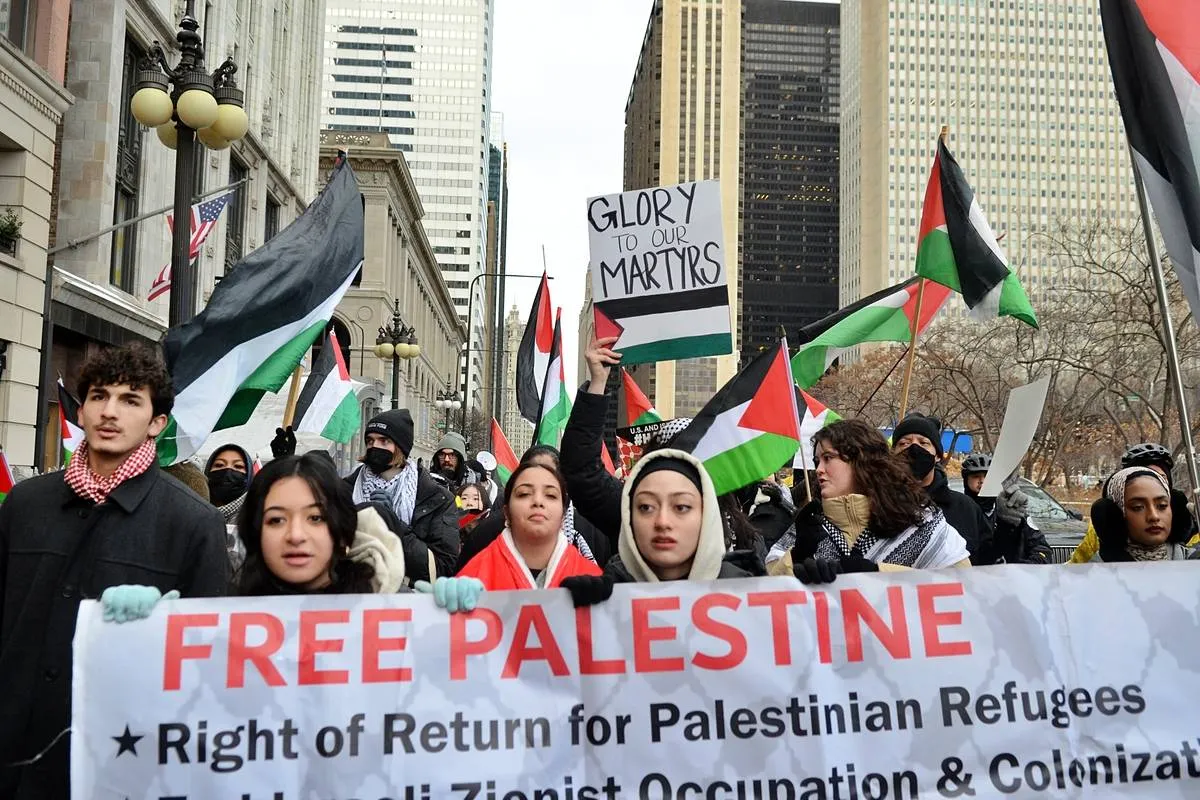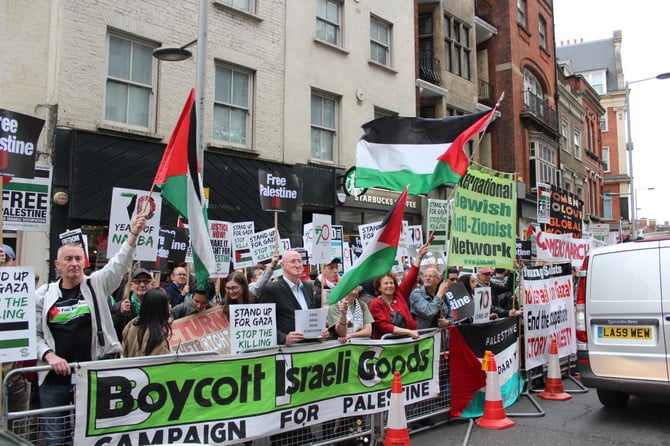Last week, former US Ambassador to the United Nations, Nikki Haley, tweeted then retweeted: “Israel has a right to self-defense.” This bold statement seems to be missing a crucial detail: Palestine too has a right to self-defence.
In accordance with international humanitarian law, wars of national liberation have been expressly embraced, through the adoption of Additional Protocol I to the Geneva Conventions of 1949, as a protected and essential right of occupied people everywhere.
Nevertheless, the statement perfectly encompasses the world’s impression and reaction to Palestinians exercising the same right, which is heavily warped in inequity, double standards and injustice.
The tweet came in response to an attack carried out in the illegal settlement of Neve Ya’akov, where seven settlers were killed and three wounded. In an attempt to condemn the attack the former US envoy wrote: “I’m heartbroken over the news coming out of Jerusalem tonight. Only a monster would open fire on a crowd of innocent worshippers praying in a synagogue. This act of evil only emboldens the Jewish people’s resolve and we must stand with them against all terrorism.
But, the attack did not take place in a place of worship.
In fact, the illegal settlement of Neve Ya’akov, based in occupied East Jerusalem, serves as the Israeli military’s central command centre for the occupation of the West Bank, known as Fort Nehemiah.
Established in 1972 on land illegally seized by the Israeli occupation authorities, the settlement strategically links the belt of Jewish-only settlements, based in the centre of East Jerusalem to the western part of the city, resulting in the fragmentation of Palestinian communities.
Israel occupied the West Bank in 1967 and has built dozens of settlements and outposts in the region which are considered illegal under international law, along with most of the international community, considered to be a major obstacle to peace.
Noticeably absent from her chain of tweets is Israel’s four-hour-long massacre in the Jenin refugee camp just a day earlier. The bloodshed marked the day as the deadliest Israeli military raid in the West Bank in years, which left at least nine Palestinians killed and 20 others wounded, including children and a 61-year-old woman after the Israeli military forces invaded the crowded, built-up neighbourhood.
A 10th Palestinian was shot dead later that day near Al-Ram, north of Jerusalem.
Home to some 15,000 Palestinians, whose families fled or were expelled from cities and villages in what is now northern Israel during the 1948 Nakba, Jenin camp has witnessed an increase in violent incursions by the Israeli army.
Just days before the deadly raid, two Palestinian men were shot dead by Israeli soldiers in the very same camp. According to the Palestinian Ministry of Health, Jawad Fareed Bawaqneh, a 57-year-old father of six and teacher at a local school, was shot directly in the chest and 28-year-old Adham Jabareen was hit in his stomach.
A large number of Israeli occupation forces with more than 70 armed vehicles raided the Jenin refugee camp and attacked several residents with live fire and tear gas, triggering protests from locals.
These historical and social contexts are blatantly ignored not only in Nikki Haley’s tweets but the majority of the news reporting on the Neve Ya’akov shooting. They are, however, crucial to understanding the event as a whole and acknowledging the ongoing Israeli brutality under which Palestinians live and to which the media remains silent.
Implicit in this double standard is reinforcing the idea that Palestinians should simply submit to their own murder, assault and dispossession; that resistance, in the case of Palestine, is a crime.
But it is not just the Israeli aggression on Jenin or the recurring raids across the occupied West Bank which have led to Palestinian anger; Palestinians have been living under an apartheid system which leaves them few rights.
In January alone, 35 Palestinians including five children were killed. This was after 2022 was branded the deadliest year for Palestinians – especially in the West Bank – since 2005, with over 226 Palestinians killed by Israeli occupation forces, including 49 during a three-day-long bombing of the Gaza Strip. With 35 lives lost already this year, the momentum of last year’s violence by the Israeli occupation seems set not only to continue but to increase in 2023, averaging an execution a day.
Yet, despite the brutality, Palestinians who resist are repeatedly demonised and labelled “terrorists”. While the aggressor, Israel, continues to tighten the noose it has placed around them.
Palestine needs to stop being alienated from the fundamental right to self-determination, freedom and independence, recognised under international law. For Palestinians suffering under decades of illegal military occupation, this includes the right to resistance in any form necessary.
Shortlink for this post: https://daysofpalestine.ps/?p=34887








